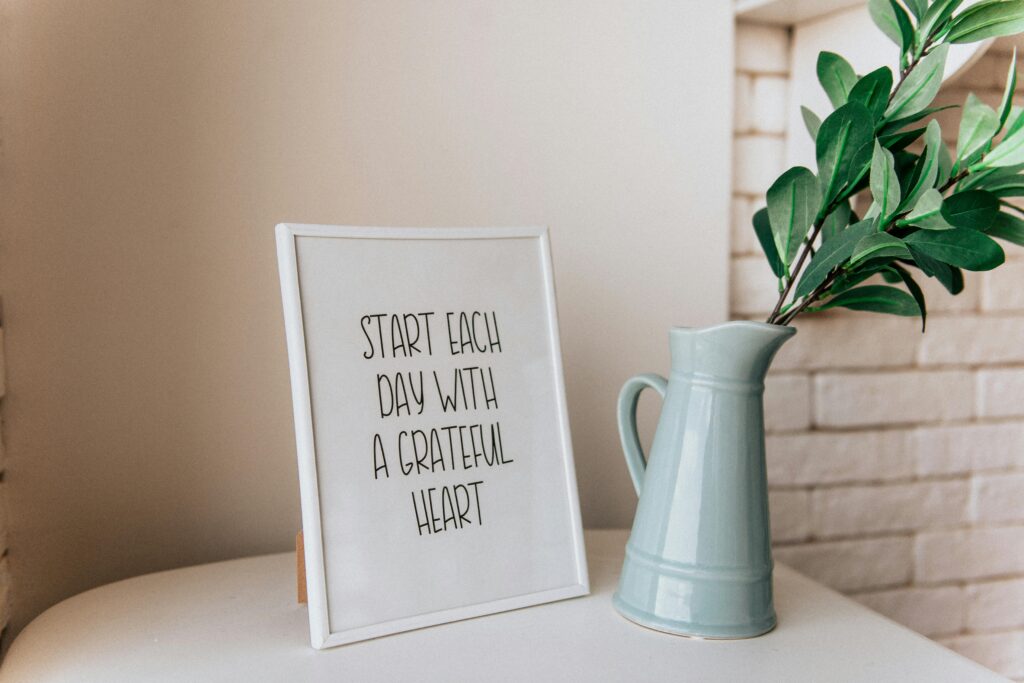Don’t Let your Gut Ruin Your day! 7 Simple Steps to Calm it

Are your gut issues taking over your life? I know exactly how that feels. For years, I suffered through bloating, pain after meals, and embarrassing bathroom emergencies that made social gatherings a source of anxiety rather than joy.
What I once thought was normal turned out to be chronic gut inflammation—a condition that affects not just digestion, but your entire wellbeing.
In this post, I’ll share my journey from constant digestive distress to healing, including the 7 practical steps that finally calmed my angry gut. Whether you’re dealing with occasional discomfort or chronic issues, these evidence-based strategies helped me transform my gut health without expensive supplements or restrictive diets.
I used to have major tummy troubles. It felt normal to me because that’s all I knew. Feeling sick after a meal or eating out was common. It didn’t occur to me that this wasn’t the norm until it started interrupting my life and became embarrassing. Initially I didn’t even know what gut inflammation meant.
Why does it matter?
When the stomach is inflamed it can cause a lot of unpleasant symptoms. Not only are the symptoms annoying but this problem can lower the immune system and alter overall health. Gut issues can look like chronic constipation/diarrhea, fatty stools, pain after eating, bloating, eczema, joint pain, insomnia, depression, and the list goes on. If the gut is constantly inflamed with chronic digestive issues it can cause a lower immune system and even lead to autoimmune disease. I’m not telling you this to scare you but more so to understand the importance of gut health.
I knew something wasn’t right
I used to have gut issues all of the time. If I got sick after I ate I would chalk it up to food poisoning or having an allergy to a food. I began to wonder how I could have so many allergies to a bunch of foods or how each time I ate out I was sick after. It turns out it wasn’t just allergies or every restaurant contaminating my food.
Common symptoms that signal gut inflammation
The most common symptoms that signal gut inflammation are:
- Stomach discomfort after eating
- Not digesting food properly
- Irregular bowel movements
- Unable to eat most whole healthy foods
- Constant nausea
- Headaches/joint pain after eating
- Bloating/gas
Acute vs Chronic Gut Inflammation
An inflammatory response is a normal reaction when a foreign invader enters our body. This can look like a virus or illness that causes a fever or even temporary food poisoning. Once the invader is gone our body can resume normal function. What’s not normal is an ongoing inflammatory response that can cause chronic inflammation in our gut.
Acute inflammation in the gut can look like a tummy ache or minor stomach upset that passes. Chronic inflammation is ongoing and can wreak havoc on the immune system and make the digestive system an unhappy place.
Triggers
Understanding my triggers that lead to stomach discomfort were the first steps to overcome this annoying issue. I first eliminated all processed foods, gluten and dairy. This was helpful to get the junk and bad oils out of my diet. I worked on decreasing stress and worry. I practiced chewing my food thoroughly and being grateful despite my circumstances. Doing these things were what started my journey and helped me to decrease the triggers!

Signs and Symptoms of Gut Inflammation
When I was in my early 20’s I noticed myself having more gas, bloating, and stomach pain after eating. I wanted to ignore it but when it became an everyday issue I couldn’t. It would come on if I ate too much fiber, for example if I ate a salad and an apple it was game over for me. Within an hour I would be stuck in the bathroom. If I ate a work lunch that was provided, often I would get sick after. I felt embarrassed and after some time went to see my family care doctor. I was then told I probably had IBS and was offered to take a depression test. Unfortunately being told this and offered a screening was not going to fix my problem.
When our gut bacteria is not balanced and we eat foods that disrupt the lining in our gut it can make it difficult to digest foods. This can cause bloating, cramping and just feeling unwell. When this would happen to me I would often feel fatigued and low energy. It took a toll on me and at times I would worry about going out to eat with friends. I feared telling people I felt sick or being stuck in the bathroom. It wasn’t a fun way to live.
The impact
Bloating, gas, and digestive discomfort are some of the more obvious symptoms. Gut health can impact other areas of health too. This can look like skin issues such as eczema or psoriasis, depression, thinning hair, joint pain and even autoimmune disease. When the lining in our gut is impaired and there are leaks in it, food can get into our bloodstream causing our body to react. Remember the foreign invader?
How to Calm Gut Inflammation
As I mentioned when I first started my health journey I eliminated all processed foods and focused on nourishing whole foods. I included easy to digest foods to begin with. Things like mashed potatoes, stew, eggs, rice, most berries, and avocado to name a few. I avoided added sugar, wheat products, and high fiber foods. The high fiber foods may come as a surprise but when your gut is inflamed it makes it hard to digest these foods. They are great when everything is working well!
Emotional impact
Dealing with a chronic illness took a toll on me. I was tired of feeling sick and complaining to others that I felt sick. The fear of food took control and at one point I was eating a very limited diet. I turned down food and dinner invites and at times had to explain that I had gut issues and couldn’t eat certain foods. This made social situations difficult. Unless someone has been through this I think it’s hard for others to understand. At times others would say “just try a little bit” or “why can’t you eat anything?” It was exhausting and draining.
Stress Management
Stress can be one of the main culprits for gut issues. I never believed it to begin with. I thought sure, I can try to be less stressed but I didn’t think it would change my outcome. Working as a nurse can be hectic and stressful. I worked in a hospital and sometimes it was hard to even take lunch. When my gut health became worse I became desperate and was willing to try anything. I’m a natural worrier and I knew it was time to do something about it.
I first started meditating. I didn’t believe in this to begin with and thought it was a bit woo-woo. Trust me it takes time and it wasn’t something I learned overnight. It took practice and learning what relaxation and de-stressing really meant. I learned to turn my focus away from things I can’t control.
I also added in deep breathing. If you’re looking for a good tutorial look up Wim Hoff, he’s amazing! Before meals I would sit down, take ten deep breaths and slowly eat my meal, chewing my food carefully. Following these steps made a difference. My digestion slowly improved. I was able to handle stressful situations better and noticed I wasn’t getting so worked up about things that probably wouldn’t matter tomorrow.
Sleep
Sleep was huge for me! I used to burn the candle at both ends and wonder why I was so tired and couldn’t get better. That all changed. Getting 7-8 hours is recommended for most people. This gives your body time to heal and repair for the next day. It also gives our stomachs a rest and time to heal.
Sticking to the same bedtime is a good way to stick to a routine and feel your best. Also, there have been studies that people who are constantly lacking sleep have a shorter life span. Getting a solid 8 hours made such a difference for me! I was no longer dragging through work, had the energy to get through a workout and my body performed better including my digestion.
It’s not a quick fix
I tried just about every supplement out there and was hoping that something would be a quick fix. Sadly it didn’t work that way for me. While I do think some supplements and probiotics can be beneficial to aid in helping to restore the gut. Overall, diet and lifestyle are key. Eating whole foods, fermented foods and creating a healthy sustainable lifestyle is what will heal the gut. The 30 day fix or one pill that promises to do everything will probably leave you disappointed. I wish I had known this before I started.
Summary
To heal your gut and decrease inflammation do these things:
- Decrease stress
- Get 7-8 hours of sleep
- Chew food adequately
- Eat whole foods
- Limit and avoid processed foods
- Avoid sugar
- Add in fermented foods
Once you have done all of these things and are feeling great again it’s important to stay on track! I have had patients who want to eat healthy until they feel good again and then they go back to their old habits. Then they end up in the same boat with tummy issues and poor health. It’s important to stay the course. I don’t think we have to eat perfectly all of the time. I believe in the 90/10 or 80/20 rule. Meaning 80-90% of the time you are eating the best foods for your body and occasionally you have a splurge. This keeps balance and makes this truly sustainable.
Disclaimer
This is information is not meant to replace medical advice or be taken as medical advice. If you have persistent symptoms or feeling unwell it is always recommended to consult a medical professional.
Conclusion
If you are currently struggling with gut issues this does not have to be forever! With diligence and patience it can get better and your gut can heal. Believing this is part of the healing journey. Just know you can do this! It probably won’t be an overnight fix, over time it will happen. Before you know it you will be feeling amazing and saying what gut issues?
What have you done to heal your digestion? Let me know in the comments!